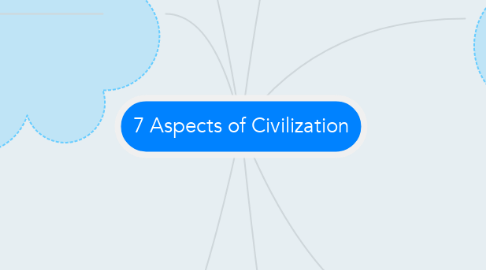
1. Religion
1.1. Shang Zhou
1.1.1. Everyone Believed in an afterlife.
1.1.2. They sought for advice from their deceased Ancestors, so they burned animal bones. These are called Oracle bones.
1.1.3. Kings were Buried with Prisoners of war and Treasures to help them in the afterlife.
1.2. Sumarians
1.2.1. Practiced polytheism which is the worship of many gods instead of one.
1.2.2. Each god controlled a natural force and/or Natural occurrence.
1.2.3. The Sumerians believed that the gods were like more powerful humans, they fell in love, they ate, they drank ETC.
2. Economy and Trade
2.1. sumerians
2.1.1. The Sumerians used slaves, although they were not a major part of the economy. Slave women worked as weavers, pressers, millers, and porters.
2.1.2. The Sumerians traded all along southwest asia and beyond, trading woven textiles for materials such as metal, timber and stone
2.2. Shang Zhou
2.2.1. In the handicraft industry, the work was subtly allotted to many different workers and crafts were made in large quantities and varieties, showcasing the different techniques used during this time.
3. Social Structure & Family Life
3.1. Sumerians
3.1.1. In the homes of the poor and rich alike, the husband and father is the master of the household.
3.1.2. The husband has the right to divorce a barren wife and to take concubines.
3.1.3. The Husband is even allowed, under certain circumstances, to sell his wife into slavery.
3.2. Shang Zhou
3.2.1. Zhou Dynasty is defined by a unique social hierarchy, standardized spoken language, and lengthy time of reign.
3.2.2. the kings expected their citizens to follow the rules and values of Confucianism.
3.2.3. he social structure of the Confucian beliefs starts with emperors above all, with scholars following at a close second, farmers before merchants, and merchants before slaves and women.
4. Arts & Education
4.1. Sumerians
4.1.1. carvings and statuettes put some color to the texts and help bring this vibrant culture to life.
4.1.2. The daily life of Sumerians is well documented, thanks to the invention of writing
4.2. Shang Zhou
4.2.1. Bronze work for vases, cups, and other household items.
4.2.2. Tombs decorated elaborately for wealthy
5. Government and Leaders
5.1. Shang Zhou
5.1.1. Ruled by a Monarchy (King)
5.1.2. The King Appointed Governors to rule distant parts of the kingdom.
5.1.3. Was mostly an Agricultural society
5.1.4. When the Zhou Conquered china they felt the Chinese people wouldn't accept them, so they created the Mandate of Heaven. The Mandate of heaven states that "If an unjust ruler comes to power, he will not be able to hold his position as king".
5.2. Sumerians
5.2.1. was a combination of monarchy and democracy.
5.2.2. The kingdoms of Sumer were organized into city-states and the Kings ruled each city-states for the gods. They were assisted by priests, scribes, and nobles.
6. Science and Technology
6.1. Shang Zhou
6.1.1. Created extremely precise calendars based on the faces of the moon.
6.1.2. Created very stable structures such as Tombs and living spaces.
6.1.3. A very notable technology was their writing
6.2. Sumerians
6.2.1. The Sumerians are perhaps remembered most for their many inventions.
6.2.2. Many people gave the Sumerians credit for making the wheel
7. Geography and Agriculture
7.1. Sumerians
7.1.1. Sumer is the term sometimes given to the southern half of Mesopotamai in the Fertile Cresent. It had few natural resources and a bi polar climate. This forced the people of Sumer to either die or overcome.
7.2. Shang Zhou
7.2.1. chinas geography consisted of long rivers, fertile soils, temperate climates and isolated valleys
7.2.2. Ancient China was built along the two main rivers. First the Yellow River in the north, and later the Yangtze in the south.
7.2.3. people grew millet in the rich, easily worked loess soil.
